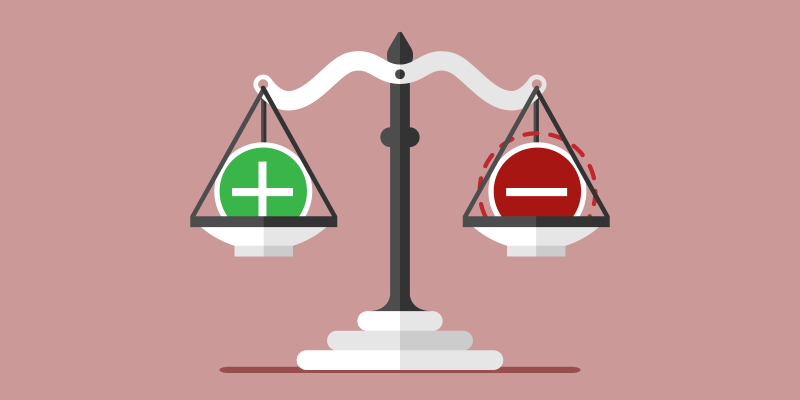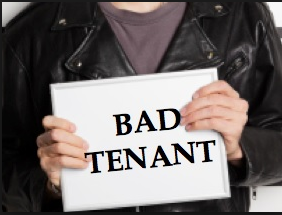Is it worth it to be a real estate landlord?

Becoming a landlord can be very tempting. You are able to own a property and receive a constant flow of income from it. All the while you have a high-value asset that you can then sell whenever you feel the need to. Having that flow of cash from multiple properties can end up being a significant income stream. Which is something I encourage greatly!
The advantages of being a real estate landlord

The obvious lure of being a landlord is the money that you receive. It’s a direct income stream that will be able to go into your bank account each month. The more properties that you have, the higher your income will be each month. Passive!
Not only do you get to enjoy the regular income from renters, but you also get to enjoy the increased value from your properties. The housing market fluctuates like all markets, but you can always expect a steady increase over time.
All of this leads to a high level of long-term security. If you ever get into financial trouble then you have assets to use, if you simply want to retire, owning multiple properties with tenants will give you an extremely comfortable retirement. One of the biggest advantages is that rental properties can be passed down helping to create “generational wealth”!
The disadvantages of being a real estate landlord

It’s not all sunshine and rainbows, of course. Choosing the wrong tenants can lead to a lot of trouble as it can leave you without income and facing legal costs. Having a bad tenant can end up costing you a lot of money and time, not to mention stress.
You must also be on call 24/7 should there be any problems. You can pay a property manager to do this for you, but that can be another significant cost but worth it in the grand scheme of things. Even if you outsource that help, you will still have to pay for any maintenance or repairs the property needs.
There are also other costs to consider. You will have to pay for property taxes, insurance, and possible homeowners association fees. When you add these to the costs of maintaining a property, it can really eat into your profits.
Can you afford it?
Some people have a mortgage-free property and will be free to rent it without any significant costs. For many other people, they will need to get a rental mortgage and these can be hard to get. There is a good chance that you will need a very significant down payment.
If you’re looking into buying a property you will have two choices to make, you can either look for a property that is complete and ready to move into or you can decide to take on a project and renovate a house that has been run down.
The cost between these two options can be vast. It might be that you can only afford a house which needs a lot of work. If that’s the case, then you need to factor in the time and money that you will need to spend getting it up to shape.
What are the profits?

The profit you get from a property is going to depend on a lot of different factors. The biggest one is whether or not you are paying a mortgage. If you take a simple look at rental income minus monthly maintenance costs then there should be a significant profit.
If you add in a mortgage into this, then the chances of a profit become slimmer but are still likely. Before deciding to become a landlord, it’s a good idea to check the rental prices in your area, the type of mortgage payment you’d need to make and then factor in all the associated costs.
It’s important to look closely at these costs, as there are always unexpected payments to be made. Everyone hopes for great tenants but you need to factor in the worst-case scenarios. Also, you need to factor in the possibility of major repairs.
Your rental rates need to be competitive otherwise you won’t get any tenants at all and you want to make sure it is affordable. If you are in a higher rental area then other costs are going to be higher such as property prices and insurance.
How to avoid bad tenants
The biggest pain for any landlord is a bad tenant. To avoid this you want to make sure that you are going through a stringent process. This includes a credit check, a criminal background check and also get references from any previous landlords they have had.
It’s a great idea to physically meet your tenants. Some landlords will do everything through a property manager but this has risks. If you meet a potential tenant then you are going to be able to trust your instincts on whether or not they will make a good tenant.
Having a well-written tenancy agreement will also help to prevent any problems. A tenant should be clear in the knowledge of what they can and can’t do. If you don’t want them to have pets in the property, then they need to know that.
Most tenants are going to be great and you might even be lucky and have one which stays in the property for years and pays their rent on time, every time. A bad tenant can mean missed rent payments, legal costs of having them evicted and also having higher repair costs if they have mistreated the property.
So, is it worth it?
It’s important to go into it with your eyes wide open. Being a landlord isn’t as easy as just getting a nice sum of money each month. You need to become a manager and learn how to run your business and factor in the costs involved.
If you do that, then being a landlord can be hugely beneficial. You will be able to enjoy the great tenants and move on quickly from any bad ones. If you’re smart and organized about it, being a landlord can give you a brilliant and reliable income stream.
Want to learn more about land lording check out my book below! It should answer any and all questions you may have.
Also, feel free to leave a comment and I’ll respond as soon as possible!


Hi to all, how iss the whole thing, I think every one is getting
more from this web page, andd your views are good for new viewers.
I’ll immediately take hold of your rss as I can’t find your e-mail subscription link or newsletter service.
Do you have any? Kindly allow me realize so that I
may just subscribe. Thanks.